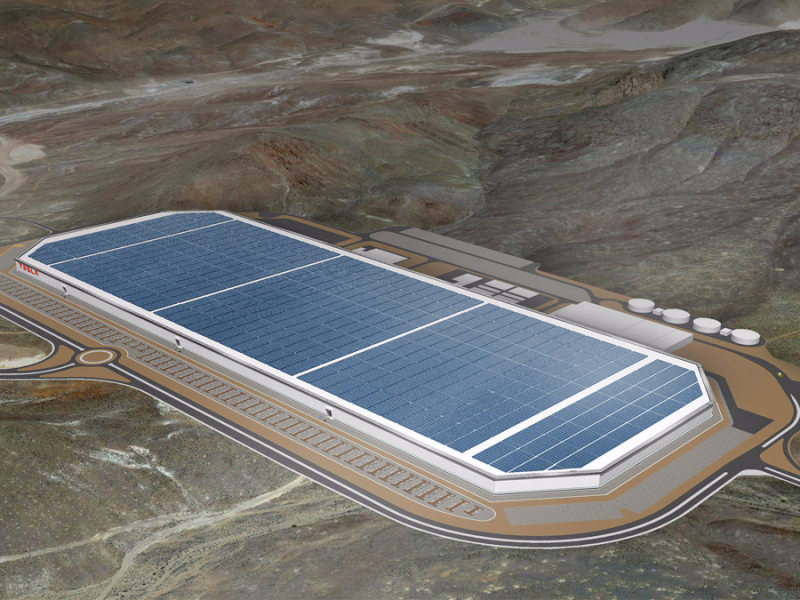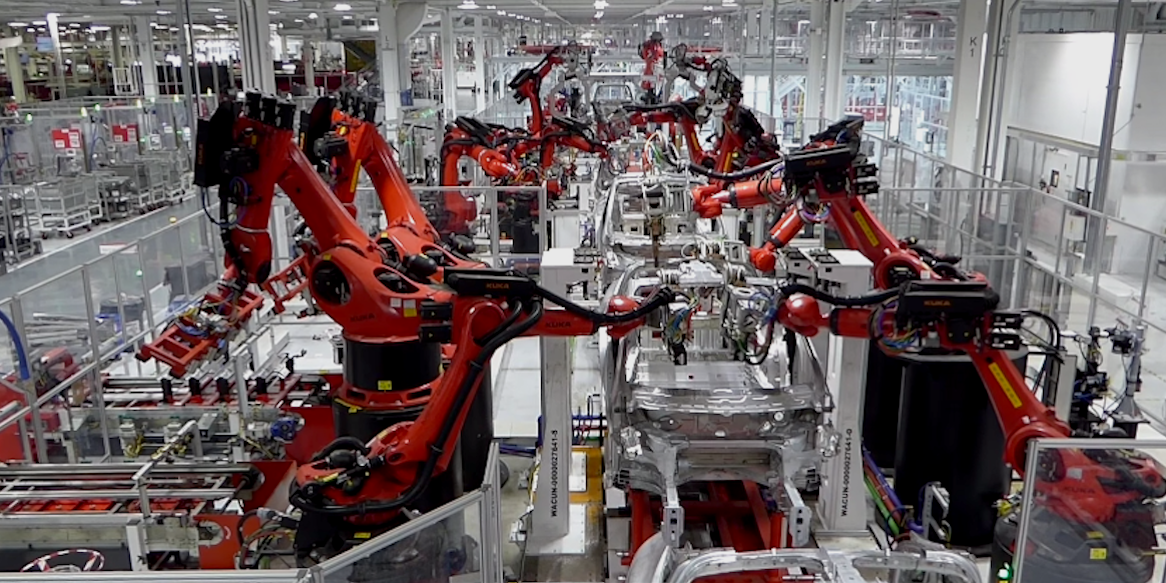Tesla will build its next Gigafactory in Europe and it will produce more than just batteries, CEO Elon Musk said Tuesday.
Musk said that Tesla plans to establish a combined vehicle and Gigafactory in Europe, where both batteries and vehicles can be produced on site. Tesla plans to eventually have at least one, if not multiple, battery and vehicles facilities in Europe, he said.
However, it will likely be awhile before this hybrid factory becomes a reality. The company will begin looking for locations for its second Gigafactory next year, Musk said. For now, though, the company remains focused on getting ready for Model 3 production, which is slated for the end of 2017.
Gigafactory 1, which is located in Sparks, Nevada, is still under construction, but it’s where Tesla plans to build the battery cells that power its vehicles, including the Model 3, and its energy products. Once Gigafactory 1 is fully operational, it will produce more lithium-ion batteries a year than all other lithium-ion manufacturers combined created in 2013.

During the last year Tesla has increasingly been focused on improving its manufacturing methods.
In May, Musk said that he was "hell-bent" on Tesla becoming the best manufacturer on Earth and in September he said that his biggest epiphany of 2016 was that what really matters is the "machine that builds the machine," or the factory.
Tesla strengthened this resolve to automate production when it announced Tuesday that it plans to acquire Grohmann Engineering, a Germany-based engineering group that specializes in automated manufacturing methods. Tesla said the firm, which will be renamed Tesla Grohmann Automation, will help the electric car maker build "the most advanced factories in the world."
Advanced factories capable of high-volume production play a major role in helping Tesla achieve its goal of accelerating a sustainable energy future, the company said in a statement published on its website Tuesday. This is because these highly-efficient factories let Tesla build products with extreme economies of scale, which helps drives down the cost of its products.
For example, Tesla's Gigafactory 1 is using advanced manufacturing methods and economies of scale to significantly reduce the cost of its batteries. Once the factory is fully operational by 2020, Tesla estimates the factory will enable it to reduce its battery prices by about 30%, which will in turn help it build its vehicles for less money.
By combining battery production with car production for the first time in its future European Gigafactory, Tesla will likely be able to make its production process even more efficient, thus helping make its products more affordable for more people.

